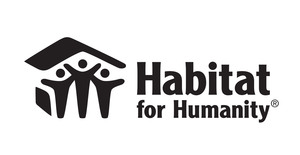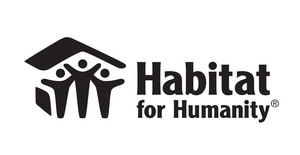Habitat for Humanity, the American Red Cross, CARE and Other Partners Help Provide More Than 13,000 Additional Emergency Shelter Kits for Haiti
ATLANTA, April 12 /PRNewswire/ -- With $3.8 million in funding from the American Red Cross, Habitat for Humanity and other groups today began assembling more than 13,000 additional emergency shelter kits for Haitians left homeless following the devastating January 12 earthquake. A donation of $250,000 from the Atlanta-based humanitarian organization CARE also is helping to make these kits possible.
(Logo: http://www.newscom.com/cgi-bin/prnh/20050501/NYSU020LOGO )
"We are grateful to the American Red Cross, CARE and our many other partners who are helping with the assembly of additional emergency shelter kits," said Jonathan Reckford, CEO of Habitat for Humanity International. "These partnerships are a great example of how we can all work collaboratively to help serve as many families as possible, even more efficiently."
The kits, containing tools and tarps to help families make immediate repairs or build temporary shelters in Haiti, are being assembled this week near Atlanta. They will be shipped and distributed in the Port-au-Prince area ahead of the peak of the rainy season in May.
"Shelter is one of the greatest needs in Haiti, especially with the rainy season upon us," says Gail McGovern, President and CEO of the American Red Cross. "We are so pleased to be partnering again with Habitat for Humanity in order to provide basic, temporary shelter for people who lost so much as a result of the earthquake."
In total, Habitat for Humanity and its partners will distribute more than 21,000 kits – enough to help more than 100,000 survivors of the Haiti earthquake. Approximately 8,500 kits were assembled in Atlanta and the Dominican Republic in February.
"While we must deliver life-saving aid to those impacted by this devastating earthquake, we also must address the reconstruction of Haiti in the long-term," said Dr. Helene Gayle, president and CEO of CARE. "This means working with the people and government of Haiti on sustainable programs that strike at the root causes of poverty, such as education for Haiti's children and addressing the health needs of women and girls. We also must ensure that adequate funding is available to support these efforts."
The emergency shelter kits are part of the first phase of Habitat's three-fold response to improve the housing conditions of 50,000 affected families. The next phases include providing thousands with transitional and reconstruction shelter solutions.
As part of the second-phase of its response, Habitat for Humanity has already begun to clear away debris from home sites, erect transitional shelters and organize unaffected families to host affected families. A Habitat transitional shelter includes earthquake- and hurricane-resistant features. They also accommodate an average of five family members, in keeping with globally-accepted standards. Transitional shelters can be recycled or upgraded into permanent housing.
Habitat's reconstruction solutions include repairing houses, building core houses that families can expand over time, and designing and planning whole communities.
The Red Cross is working on all three phases of shelter in Haiti, including distributing tarps and tents now to those left homeless by the earthquake, and then moving into transitional and subsequently permanent shelter.
CARE has been working in Haiti since 1954. It has a five-year, $100 million plan for helping rebuild the country that focuses on women and girls and includes distributing clean water, food, emergency housing kits; strengthening health programming; providing economic opportunities, transitional shelter and school kits; and raising awareness about the prevention of gender-based violence.
The United Nations' sponsored Shelter Cluster estimates that 105,000 houses were destroyed and more than 208,000 houses were damaged as a result of the 7.0-magnitude earthquake. More than 1.3 million people are homeless or displaced.
The Clinton Bush Haiti Fund has committed $300,000 to help Habitat for Humanity provide emergency shelter kits. The German Foreign Office has given Habitat more than $500,000 for the kits. Whirlpool Corporation is providing warehouse space and logistics for assembling the kits near Atlanta. The Home Depot Foundation has provided funding, volunteers and in-kind support from several Home Depot suppliers. The Ricky Martin Foundation is helping raise awareness and funds to rebuild. Hands On Atlanta helped to recruit volunteers for shelter kit assembly and additional volunteer support comes from Delta Air Lines, churches, schools, individuals and civic groups.
Habitat for Humanity has been at work in Haiti for 26 years and has provided housing solutions through a variety of initiatives including new home construction, progressive building, home repairs and improvements. Habitat also builds capacity in construction skills, disaster risk reduction and financial literacy, and works in coordination with community and government agencies.
About Habitat for Humanity International
Habitat for Humanity International is an ecumenical Christian ministry that welcomes to its work all people dedicated to the cause of eliminating poverty housing. Since its founding in 1976, Habitat has built, rehabilitated, repaired or improved more than 350,000 houses worldwide, providing simple, decent and affordable shelter for more than 1.75 million people. For more information, or to donate or volunteer, visit www.habitat.org.
About the American Red Cross
The American Red Cross shelters, feeds and provides emotional support to victims of disasters; supplies nearly half of the nation's blood; teaches lifesaving skills; provides international humanitarian aid; and supports military members and their families. The Red Cross is a charitable organization — not a government agency — and depends on volunteers and the generosity of the American public to perform its mission. For more information, please visit www.redcross.org or join our blog at http://blog.redcross.org.
About CARE
Founded in 1945, CARE is one of the world's largest humanitarian aid agencies. Working side by side with poor people in 72 countries, CARE helps empower communities to address the greatest threats to their survival. Women are at the heart of CARE's efforts to improve health, education, and economic development because experience shows that a woman's achievements yield dramatic benefits for her entire family. CARE is also committed to providing lifesaving assistance during times of crisis and helping rebuild safer, stronger communities afterward. Go to www.care.org to learn more.
SOURCE Habitat for Humanity International
WANT YOUR COMPANY'S NEWS FEATURED ON PRNEWSWIRE.COM?
Newsrooms &
Influencers
Digital Media
Outlets
Journalists
Opted In






Share this article